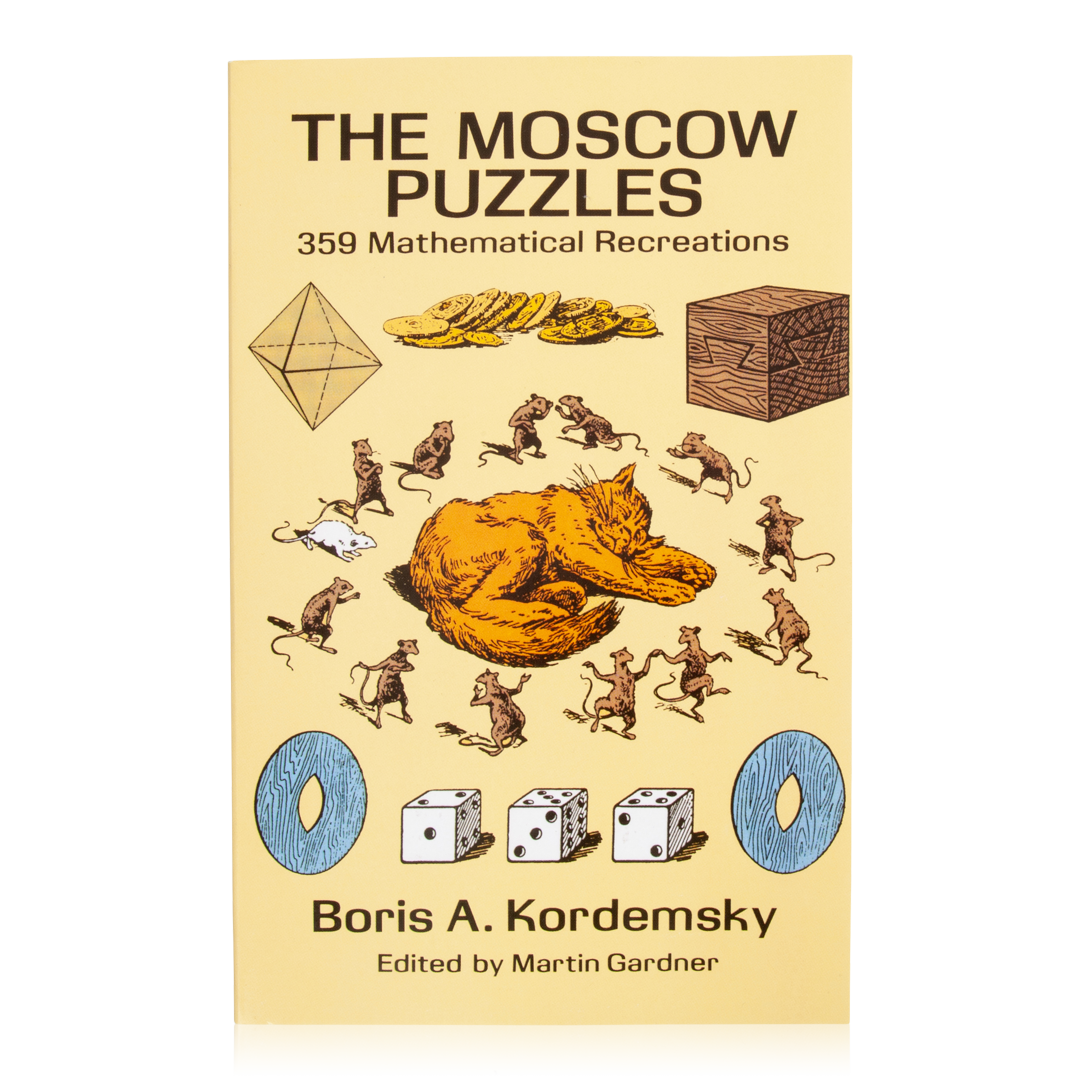
Boris A. Kordemsky, Martin Gardner
The Moscow Puzzles: 359 Mathematical Recreations

Learn more
The Moscow Puzzles: 359 Mathematical Recreations
This is, quite simply, the best and most popular puzzle book ever published in the Soviet Union. Since its first appearance in 1956 there have been eight editions as well as translations from the original Russian into Ukrainian, Estonian, Lettish, and Lithuanian. Almost a million copies of the Russian version alone have been sold.
Part of the reason for the book's success is its marvelously varied assortment of brainteasers ranging from simple "catch" riddles to difficult problems (none, however, requiring advanced mathematics). Many of the puzzles will be new to Western readers, while some familiar problems have been clothed in new forms. Often the puzzles are presented in the form of charming stories that provide non-Russian readers with valuable insights into contemporary Russian life and customs. In addition, Martin Gardner, former editor of the Mathematical Games Department, Scientific American, has clarified and simplified the book to make it as easy as possible for an English-reading public to understand and enjoy. He has been careful, moreover, to retain nearly all the freshness, warmth, and humor of the original.
Lavishly illustrated with over 400 clear diagrams and amusing sketches, this inexpensive edition of the first English translation will offer weeks or even months of stimulating entertainment. It belongs in the library of every puzzlist or lover of recreational mathematics. Reprint of the Charles Scribner's Sons, New York, 1972 edition.
Boris A. Kordemsky, Martin Gardner
Dover Publications
Paperback
320
China
978-0486270784
About the author
Boris A. Kordemsky, Martin Gardner




